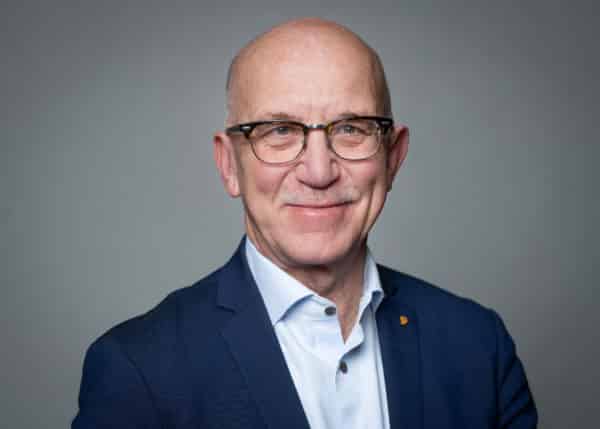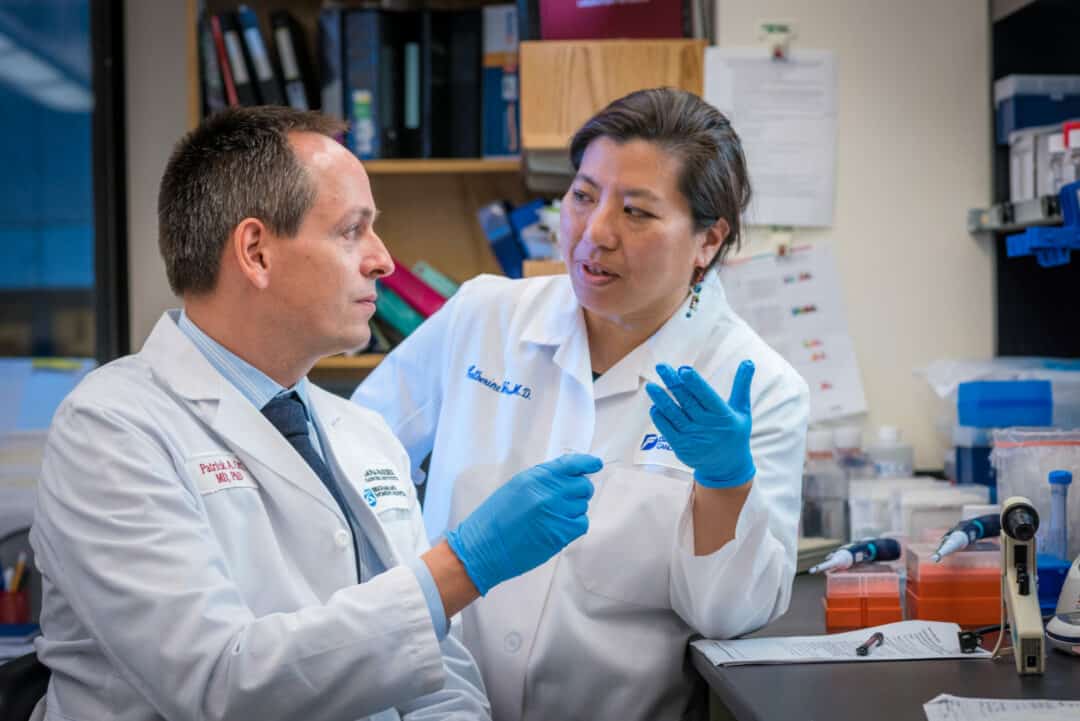On June 1, Minister for Health Acko Ankarberg Johansson, Minister for Energy and Industry, Deputy Prime Minister Ebba Busch and Carina Ståhl Herrstedt, member of the Social Affairs Committee, held a press conference on how they intend to change Swedish healthcare.
The government intends to set up a parliamentary committee to analyze and highlight the advantages and disadvantages and make proposals on the possibilities of introducing full or partial state ownership of health care in the long term.
The decision is a first step towards possible state ownership and one of the most comprehensive points in the Tidö Agreement.
-“The goal is more efficient healthcare and improved accessibility throughout the country,” says Minister for Health Acko Ankarberg Johansson.

Photo: Ninni Andersson/Regeringsskansliet
The problems faced by the Swedish healthcare system include long waiting times, lack of accessibility, poor working environment, lack of skills and consideration of patients’ needs, and an insufficient number of available beds, resulting in a lack of patient safety.
As we at PALEMA have pointed out many times, and as many of our members can also testify, there are huge differences between regions in terms of the speed of care and the types of treatments and medicines offered.
The government believes that there is an urgent need to reassess the state’s responsibility and control over health care. The aim of such a review is to improve the conditions for patients’ right to equal treatment and for a more efficient use of resources.
Mandate of the Committee
The Government intends to decide to appoint a parliamentary committee that will be tasked with producing a basis for decision-making that will enable the gradual and long-term introduction of full or partial state ownership of health care.
The Committee shall, inter alia
- analyze and highlight the advantages and disadvantages of full or partial state ownership of health care,
- make proposals to ensure a more efficient health system that is patient-centric and takes into account the needs of employees; and
- propose an implementation plan with a timetable for how the state can gradually and in the long term take over full or partial responsibility for health care.
The assignment must be reported by June 2, 2025.
Majority wants state control
According to a survey by the SOM Institute at the University of Gothenburg reported by Svenska Dagbladet, 70% of Swedes believe that the state should take over responsibility for healthcare. Support has increased slightly since 2020 when 65% were in favor of the proposal. Only 10% think it is a rather bad or very bad proposal.
– There is a broad enthusiasm for nationalizing health care, a majority from the left to the right, and it is strongest on the left, where four out of five think it is good. Indeed, support is lowest among those who place themselves as ideologically clearly on the right. But the Christian Democrats have understood that they have found an issue where they have many voters with them, says Johan Martinsson, director of the SOM Institute to Svenska Dagbladet.
Criticism from SKR
But not everyone is positive about the proposal.
Shortly after the press conference, Sveriges kommuner och regioner (SKR) commented on its website that such a change risks slowing down the development of healthcare.

Anders Henriksson SKR – Photo: SKR
– Health care needs to be developed, but transferring such a large area of responsibility to the state is not the right way to go. We have just investigated a state ownership of the school and it turned out that it would take at least 20 years and require new, heavy investigations. “We need to focus on how health care can be improved in the current organization, not on moving the boundaries between authorities,” says Anders Henriksson, chairman of SKR:
– Changing operators does not increase the number of people working in the health sector. To meet people’s healthcare needs, we need to work more on prevention and health promotion, we need to strengthen primary care and enable more self-care. Success requires close cooperation between municipalities, regions and the state, and the last thing we need is a gigantic reorganization.
SKR believes that the unequal health and inequality that exists in healthcare today is primarily due not to governance but to other underlying factors in society and to different geographical conditions and access to staff with the right skills.
SKR therefore believes that the inquiry should focus on how healthcare can be managed in a way that clarifies the roles of municipalities, regions and the state. This is not a question of the state taking over activities, but of the state taking greater overall responsibility for the digitalization of health care, for example.
At the end of April, SKR’s board sent a letter to the government and the Parliamentary Committee on Social Affairs with a number of important messages about what an investigation into healthcare governance needs to take into account.
Change is needed
But whether it’s full or partial state control or some other organizational change, many people feel that some kind of change is needed. It is not good that we have a society where surviving serious cancer depends on where you live.
We look forward to the findings of this investigation and hope that the result will be a good proposal that all political parties can support, so that we do not have to constantly change the system depending on which political majority happens to be in power at the time.
You can also watch the press conference from June 1 below.
Video from the Government Office’s YouTube channel. (Swedish)










